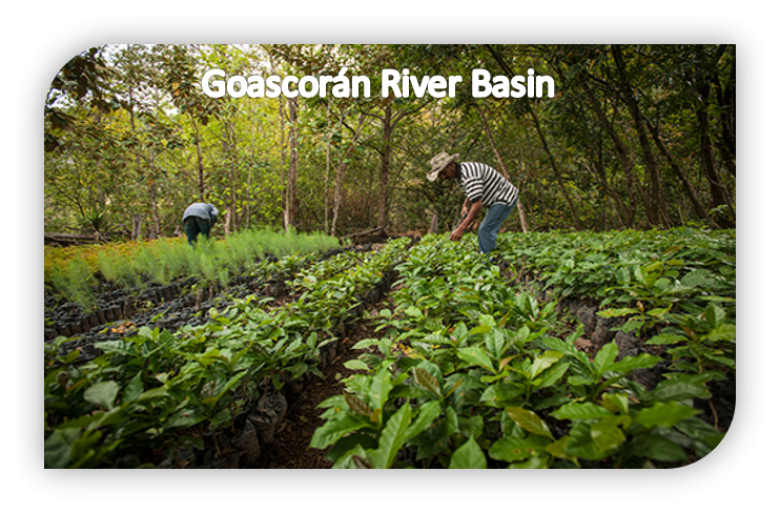The lack of a border development agreement and the great diversity of actors are part of the governance challenges of the Goascorán River basin (2,345 km2), shared between Honduras and El Salvador. In order to adapt here to climate change, a governance model that is multidimensional (multilevel and multisectoral), participatory, flexible and ecosystemic is needed, one that integrates all basin stakeholders, periodically evaluates the adaptation strategies and measures implemented, and manages priority ecosystem services. In this solution, transboundary coordination was facilitated by establishing Environmental Technical Tables (El Salv.) and promoting their rapprochement to the Goascorán River Basin Council (Hond.). At a more local level, the Lituy River (Hond.) and Honduritas River (El Salv.) Micro-basin Councils were formed, creating capacities through a “learning by doing” approach. These experiences allowed adaptation actions to be up-scaled and strengthened the basin’s governance.


